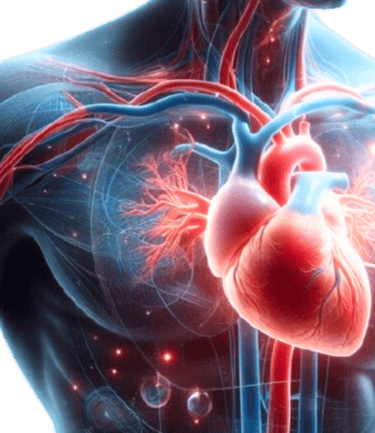Common Heart Diseases: Causes & Prevention Tips
Discover the most common heart diseases including coronary artery disease, heart failure, arrhythmias, and more. This blog post explores their causes, symptoms, and preventive measures to help you maintain a healthy heart. Learn how to protect yourself today!
Divine & Genuine.
9/16/20244 min read


1) Coronary Artery Disease (CAD) occurs when the coronary arteries, which supply blood to the heart muscle, become narrowed or blocked by plaque. This blockage can lead to angina (chest pain) or heart attacks.
Causes:
Atherosclerosis: Buildup of fatty deposits (plaque) in the arteries.
High blood pressure: Damages artery walls.
High cholesterol: Contributes to plaque formation.
Smoking: Accelerates plaque buildup.
Diabetes: Increases risk due to high blood sugar levels.
Symptoms:
Chest pain or discomfort (angina).
Shortness of breath.
Fatigue.
Nausea.
Prevention:
Healthy diet: Low in saturated fats, cholesterol, and sodium.
Regular exercise: Helps manage weight and reduce cholesterol.
Quit smoking: Reduces plaque buildup and improves heart health.
Manage stress: Reduces risk factors.
Regular check-ups: Monitor blood pressure and cholesterol levels.
2) Heart Failure happens when the heart cannot pump blood effectively to meet the body's needs. It can result from various underlying conditions that weaken the heart muscle.
Causes:
Coronary artery disease: Reduces blood flow to the heart.
Hypertension: Causes the heart to work harder.
Heart valve disease: Disrupts blood flow through the heart.
Cardiomyopathy: Disease of the heart muscle.
Myocarditis: Inflammation of the heart muscle.
Symptoms:
Shortness of breath (especially when lying down).
Swelling in the legs, ankles, or abdomen.
Fatigue and weakness.
Persistent cough or wheezing.
Prevention:
Manage chronic conditions: Control diabetes, high blood pressure, and high cholesterol.
Heart-healthy diet: Low in salt and saturated fats.
Regular physical activity: Strengthens the heart muscle.
Limit alcohol consumption: Excessive drinking can damage the heart.
Avoid smoking: Prevents further heart damage.
3) Arrhythmias are irregular heartbeats caused by problems with the heart's electrical system. They can range from harmless to life-threatening.
Causes:
Heart disease: Affects the heart's electrical system.
Electrolyte imbalances: Imbalance of potassium, sodium, or calcium.
Heart valve problems: Disrupt normal electrical impulses.
Drug or alcohol abuse: Can affect heart rhythm.
Symptoms:
Palpitations (fluttering or pounding in the chest).
Dizziness.
Fainting.
Shortness of breath.
Prevention:
Regular check-ups: Monitor heart health and detect arrhythmias early.
Healthy lifestyle: Avoid excessive caffeine and alcohol.
Manage underlying conditions: Control high blood pressure and heart disease.
Avoid smoking and drug abuse: Reduces risk of arrhythmias.
4) Heart Valve Disease occurs when one or more heart valves don't function properly, affecting blood flow through the heart.
Causes:
Congenital defects: Present at birth.
Rheumatic fever: Can damage heart valves.
Infective endocarditis: Infection of the heart valves.
Degenerative changes: Age-related damage.
Symptoms:
Shortness of breath.
Fatigue.
Swelling in the legs or abdomen.
Chest pain.
Prevention:
Regular medical check-ups: Early detection of valve problems.
Treat infections promptly: Prevent endocarditis.
Maintain good dental hygiene: Reduces risk of bacterial infections.
Manage chronic conditions: Control high blood pressure and other risk factors.
5) Peripheral Artery Disease (PAD) is a condition where the arteries that supply blood to the limbs become narrowed or blocked, usually due to atherosclerosis.
Causes:
Atherosclerosis: Buildup of plaque in the arteries.
Smoking: Accelerates artery damage.
Diabetes: Increases risk of arterial damage.
High blood pressure and cholesterol: Contribute to artery damage.
Symptoms:
Leg pain or cramping during physical activity.
Numbness or weakness in the legs.
Coldness in the lower legs or feet.
Non-healing sores or wounds on the toes, feet, or legs.
Prevention:
Healthy lifestyle: Balanced diet and regular exercise.
Quit smoking: Prevents further artery damage.
Manage chronic conditions: Control diabetes, high blood pressure, and cholesterol.
Foot care: Regular inspection and prompt treatment of any sores.
6) Myocarditis is the inflammation of the heart muscle, which can affect the heart’s ability to pump blood.
Causes:
Viral infections: Most common cause, including viruses like coxsackievirus.
Bacterial infections: Less common but can cause inflammation.
Autoimmune diseases: Such as lupus or rheumatoid arthritis.
Exposure to toxins: Certain drugs or chemicals.
Symptoms:
Chest pain.
Fatigue.
Shortness of breath.
Swelling in the legs and feet.
Prevention:
Avoid infections: Practice good hygiene and get vaccinated.
Manage autoimmune diseases: Proper treatment to reduce inflammation.
Avoid toxins: Limit exposure to harmful substances and medications.
7) Hypertensive Heart Disease results from chronic high blood pressure, which can lead to heart failure, stroke, and other complications.
Causes:
Chronic hypertension: Long-term high blood pressure puts strain on the heart.
Obesity: Increases risk of hypertension.
Genetics: Family history of high blood pressure.
Lifestyle factors: Poor diet, lack of exercise, and high salt intake.
Symptoms:
Often asymptomatic in the early stages.
Headaches.
Shortness of breath.
Chest pain.
Prevention:
Manage blood pressure: Regular monitoring and medication if prescribed.
Healthy diet: Low in salt and rich in fruits and vegetables.
Regular exercise: Helps maintain healthy blood pressure.
Limit alcohol and quit smoking: Reduces risk of hypertension.
8) Cardiomyopathy is a group of diseases that affect the heart muscle, impairing its ability to pump blood effectively.
Causes:
Genetic factors: Inherited conditions that affect the heart muscle.
Viral infections: Can lead to inflammation and damage.
Alcohol abuse: Chronic alcohol use can damage the heart muscle.
Chronic high blood pressure: Causes the heart muscle to thicken or stretch.
Symptoms:
Shortness of breath.
Fatigue.
Swelling in the legs or abdomen.
Chest pain.
Prevention:
Healthy lifestyle: Balanced diet and regular exercise.
Limit alcohol consumption: Prevents alcohol-related cardiomyopathy.
Manage blood pressure: Reduces strain on the heart muscle.
Regular check-ups: Monitor for genetic or acquired conditions.
NOTE: Maintaining a healthy lifestyle, managing chronic conditions, and having regular medical check-ups are crucial for preventing and managing heart diseases.
DON’T FORGET TO SUBSCRIBE AND SHARE.
DISCLAIMER: Please be advised that the information provided here is for informational purposes only. It is not intended to be taken as medical advice or consultation. It is imperative that you consult your physician for any medical advice.
Quality
Providing top-notch health and wellness products and services.
Satisfaction
Gold
info@divineandgenuine.com
© 2024. All rights reserved.
